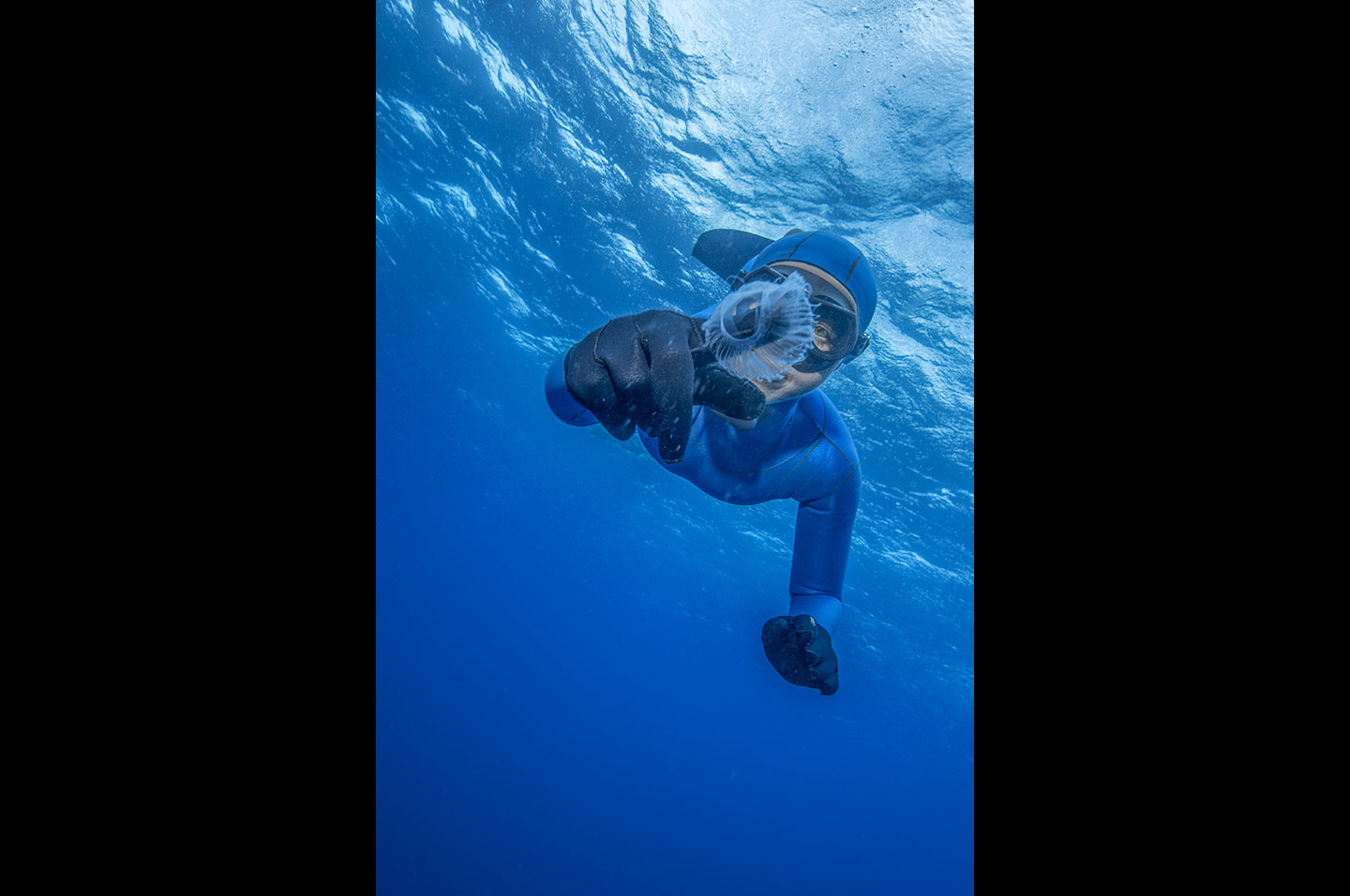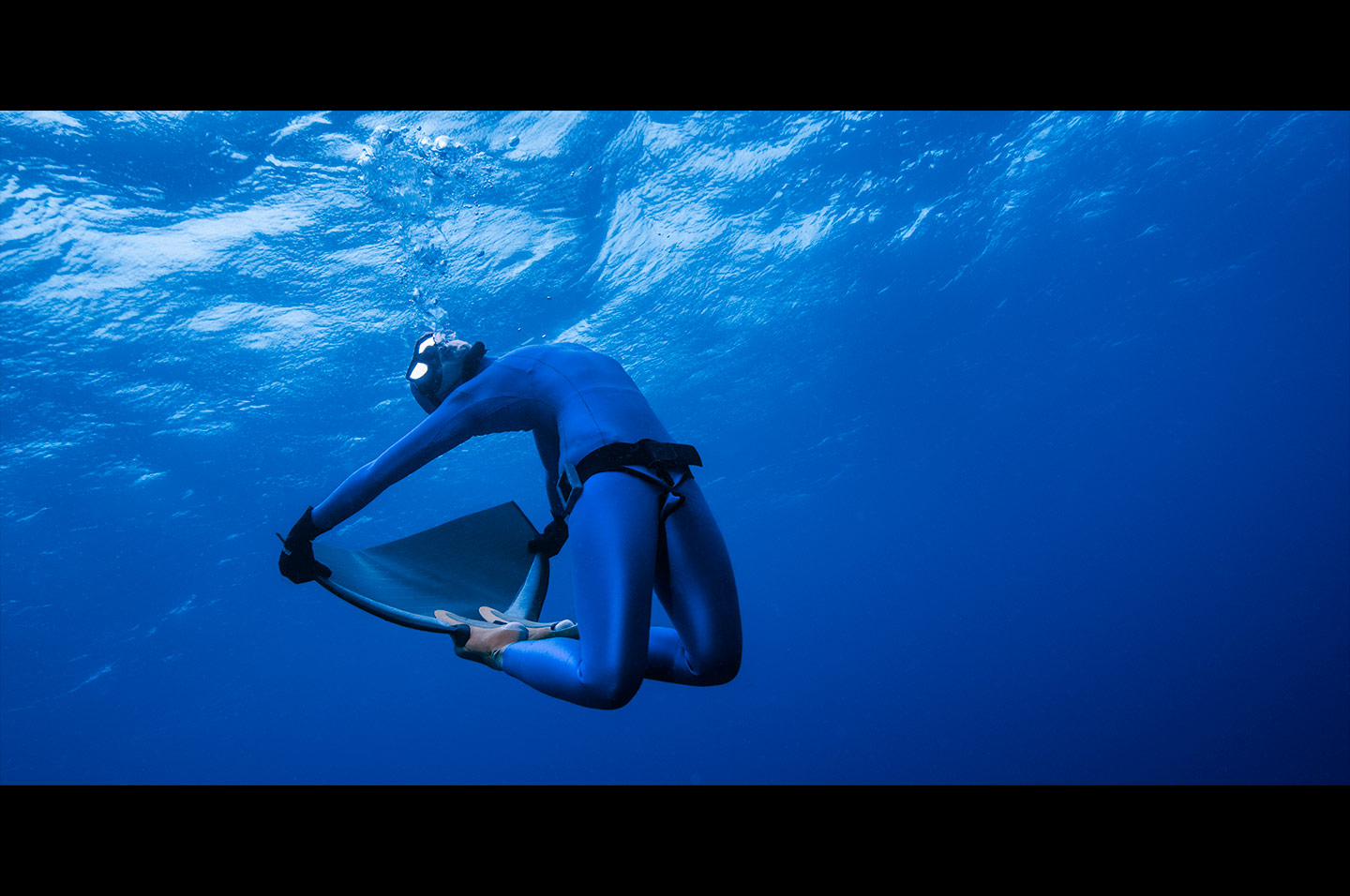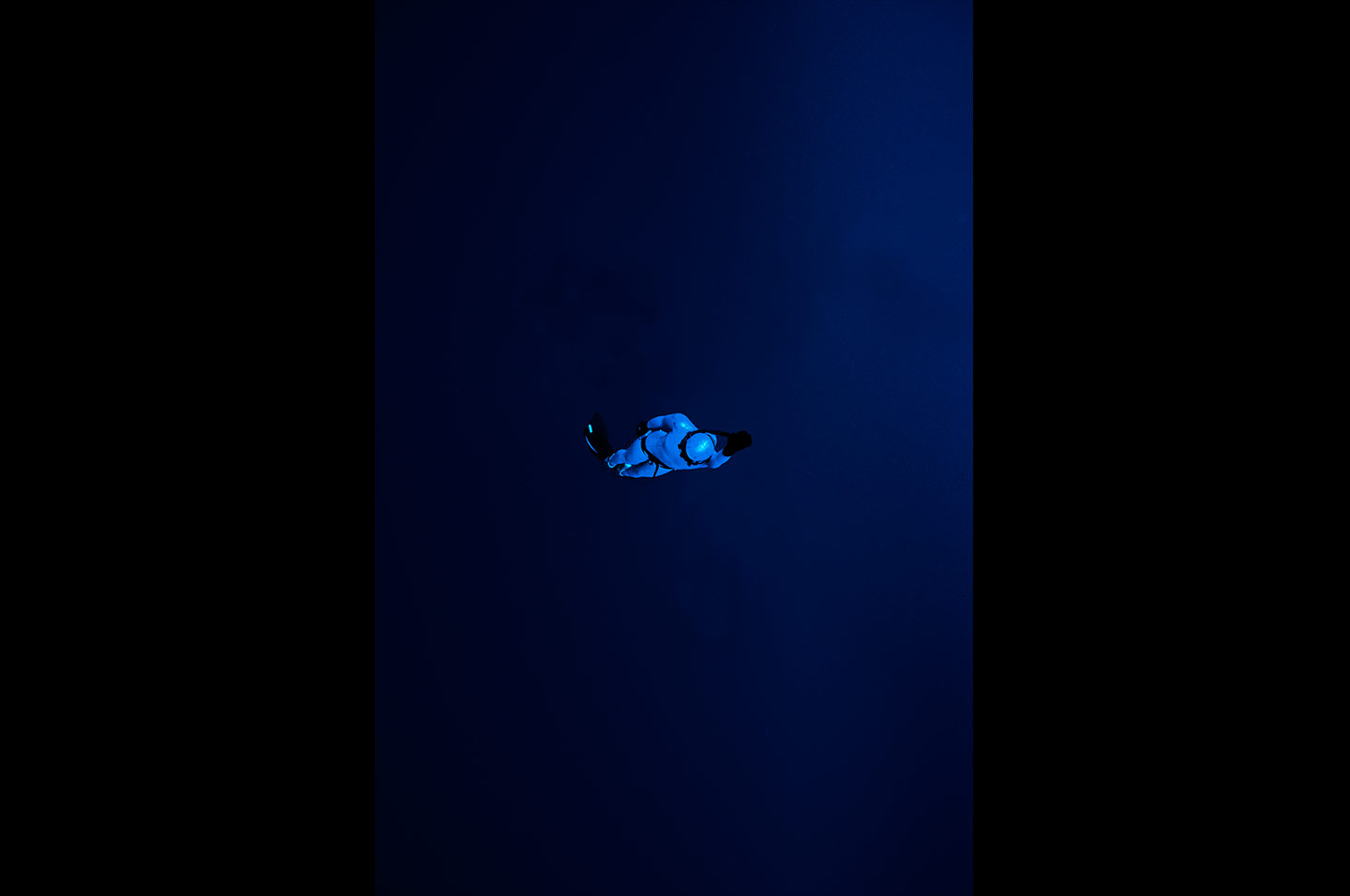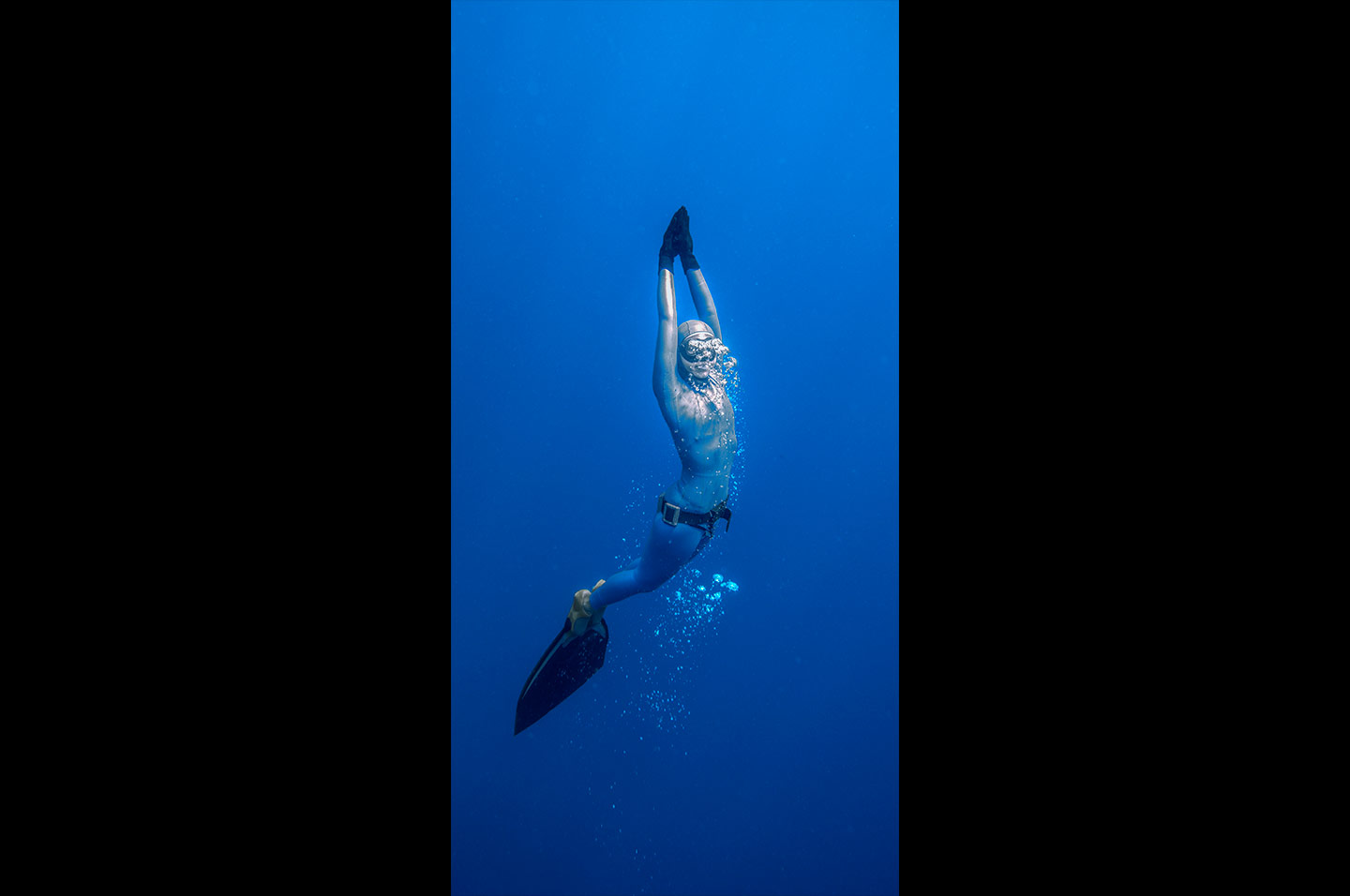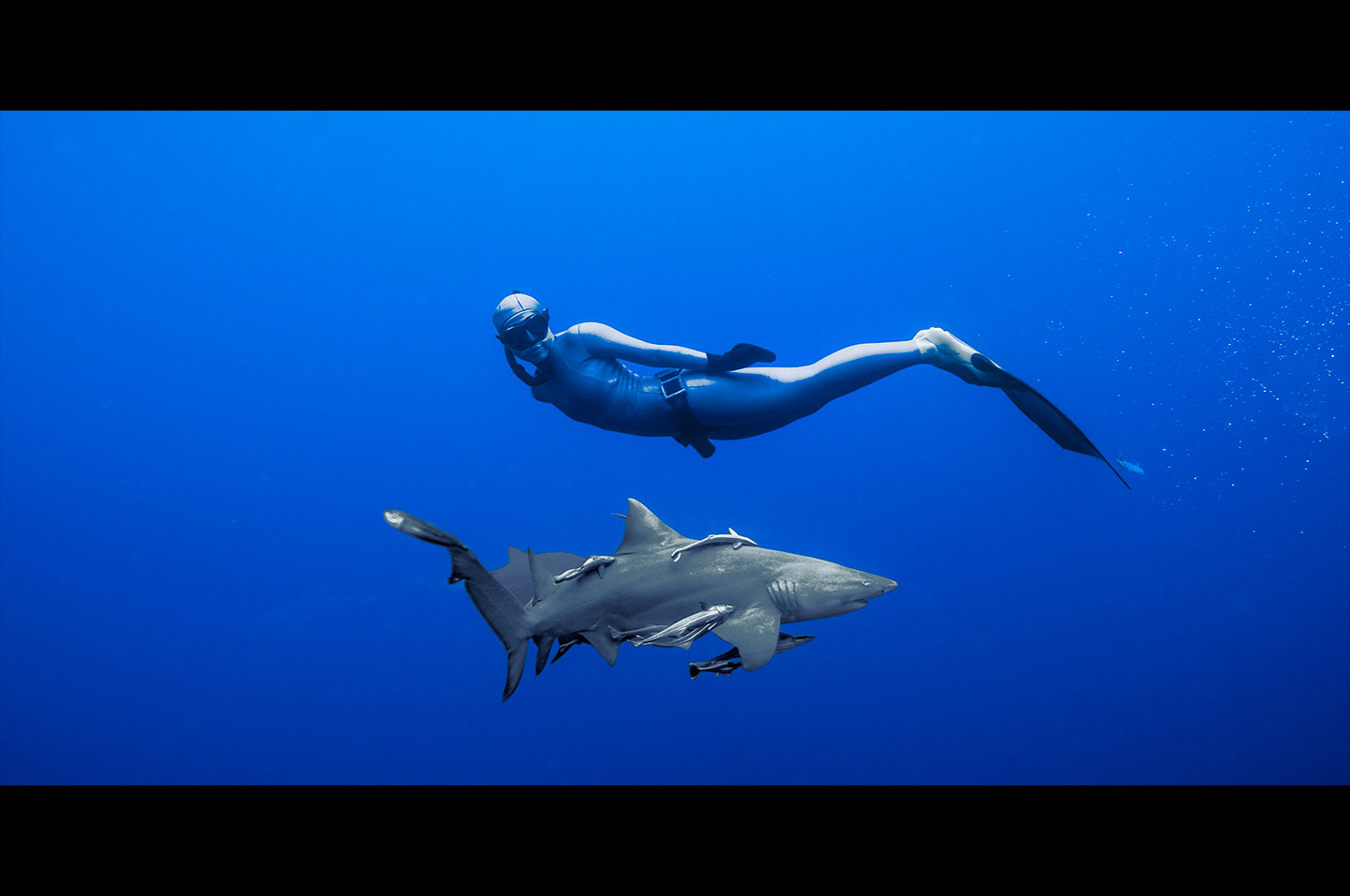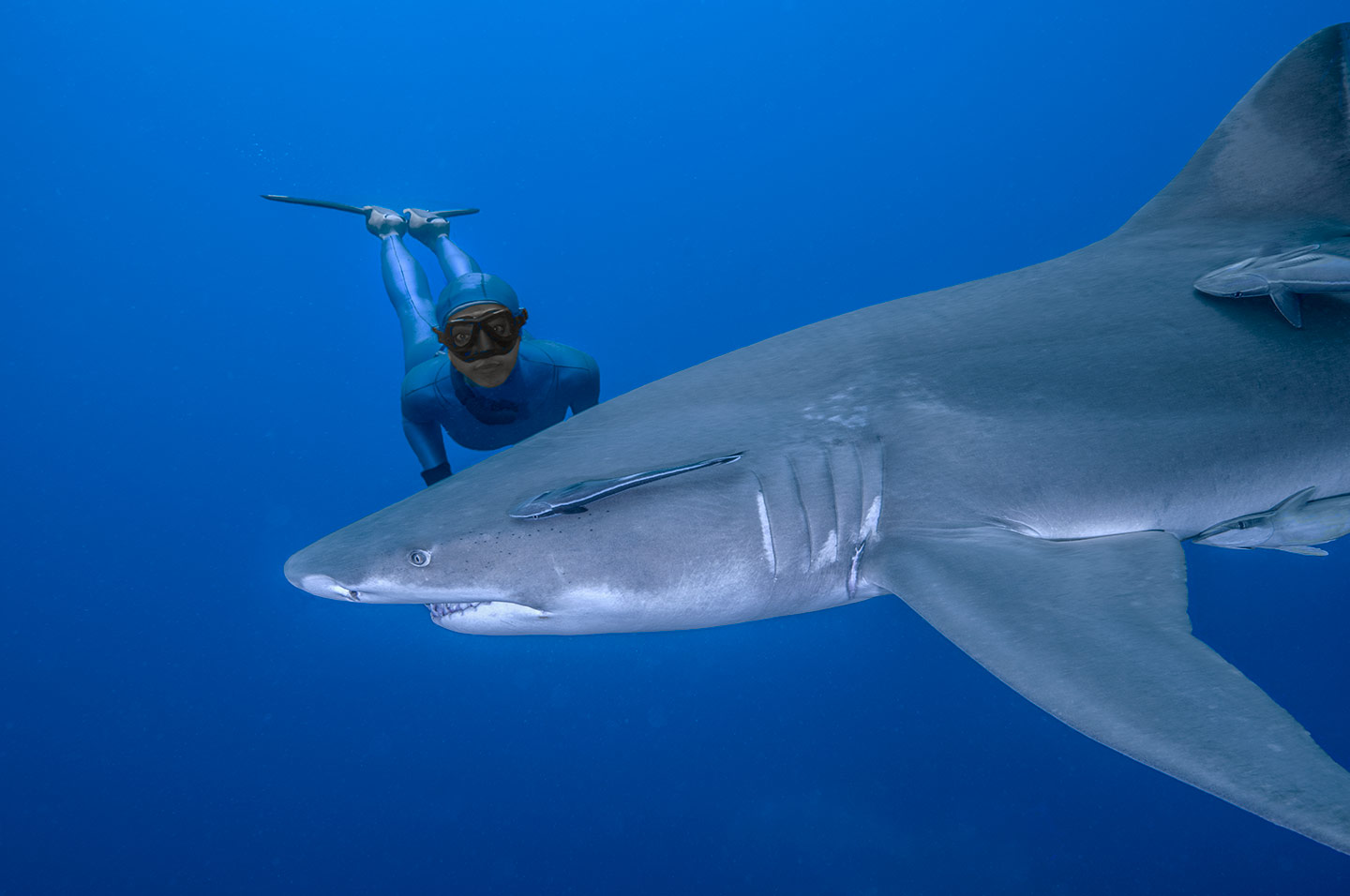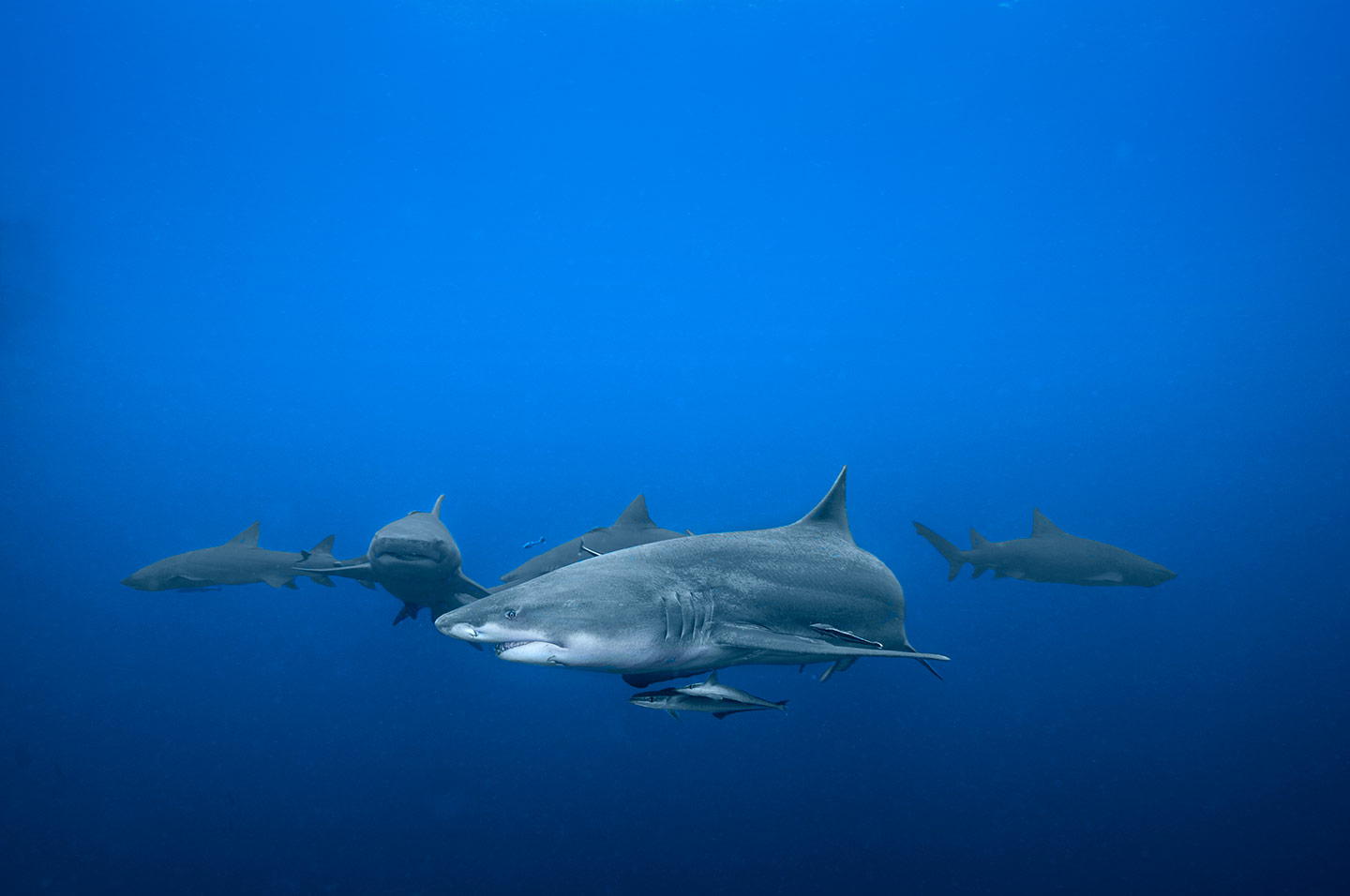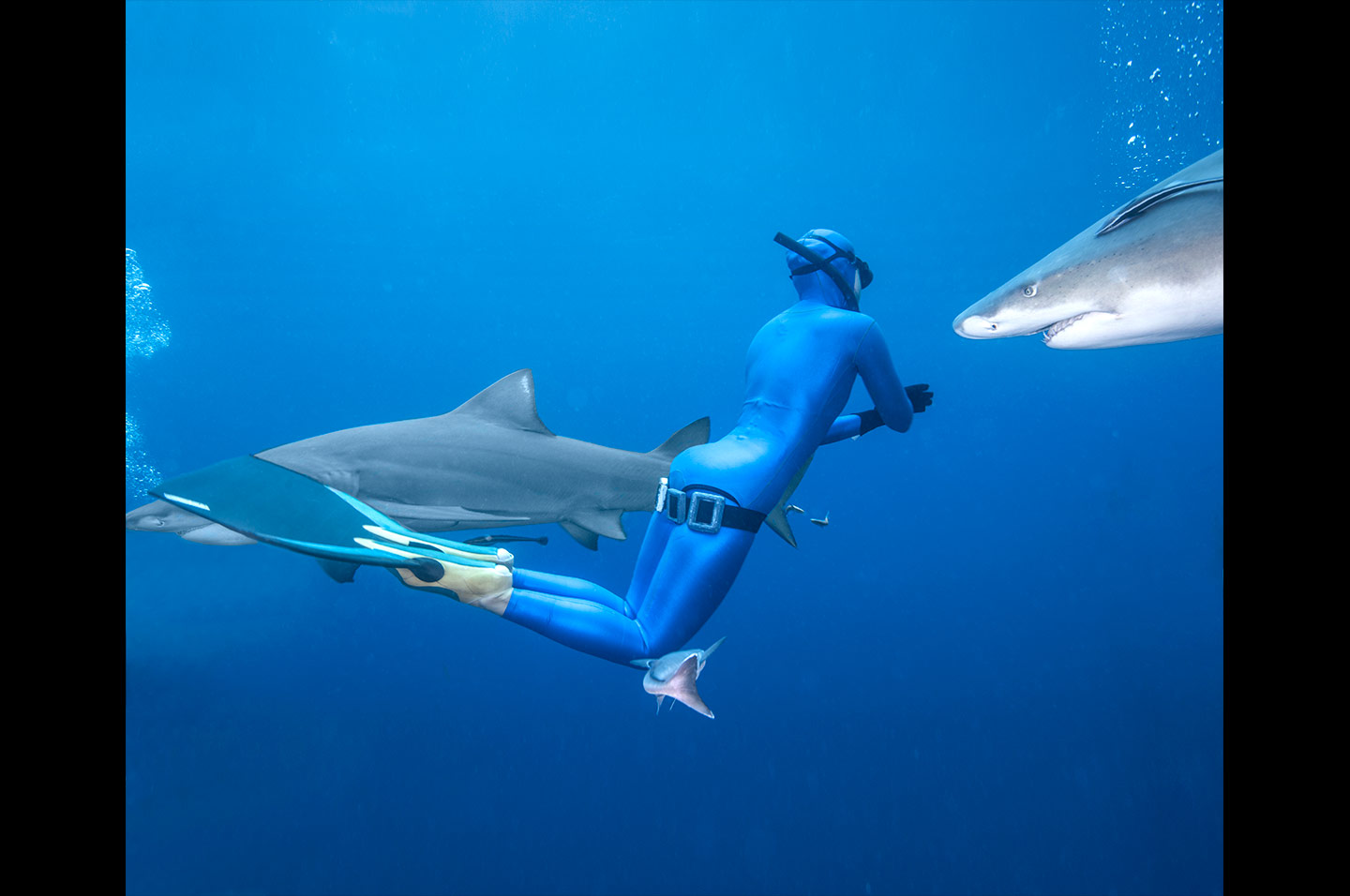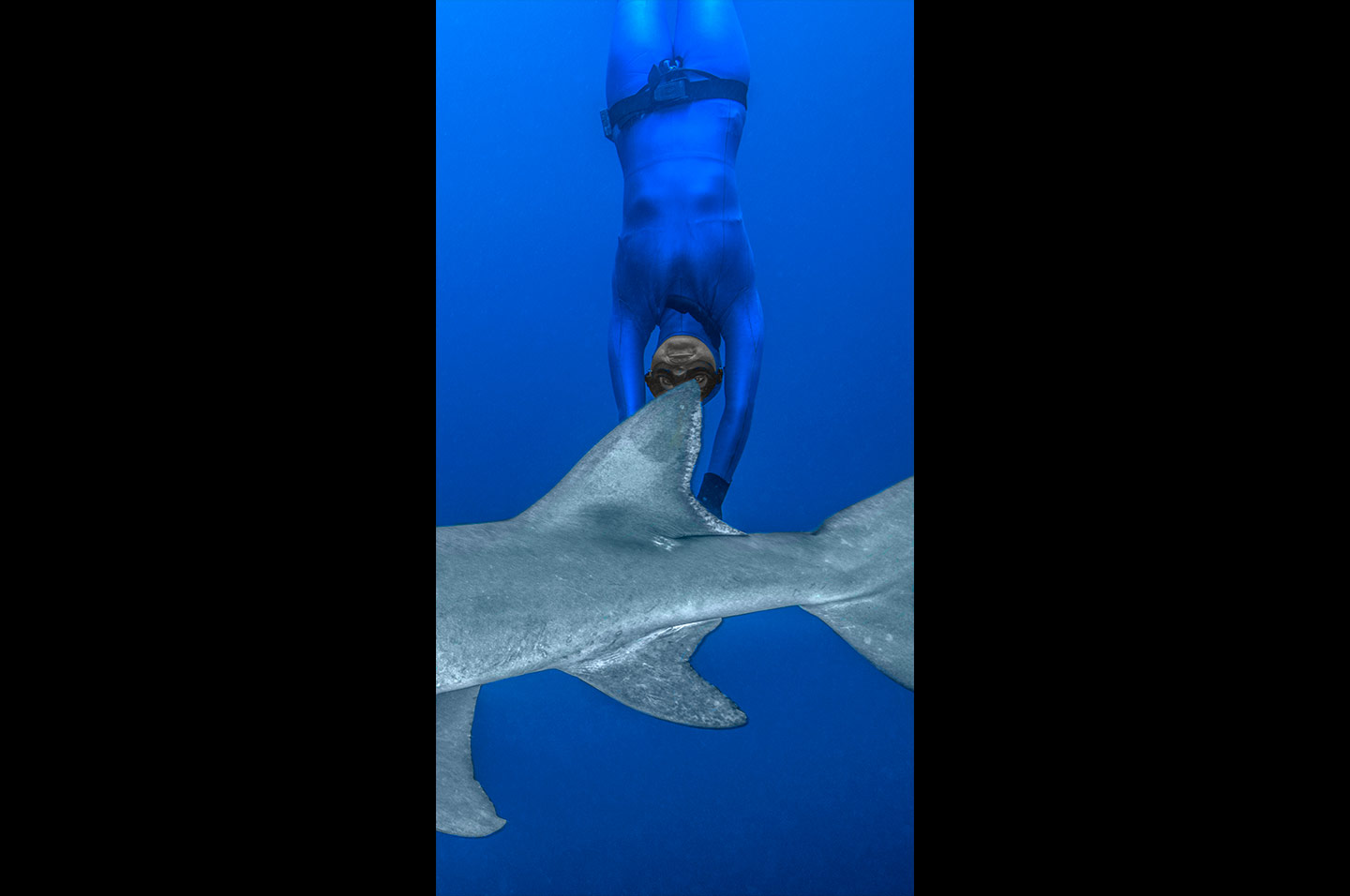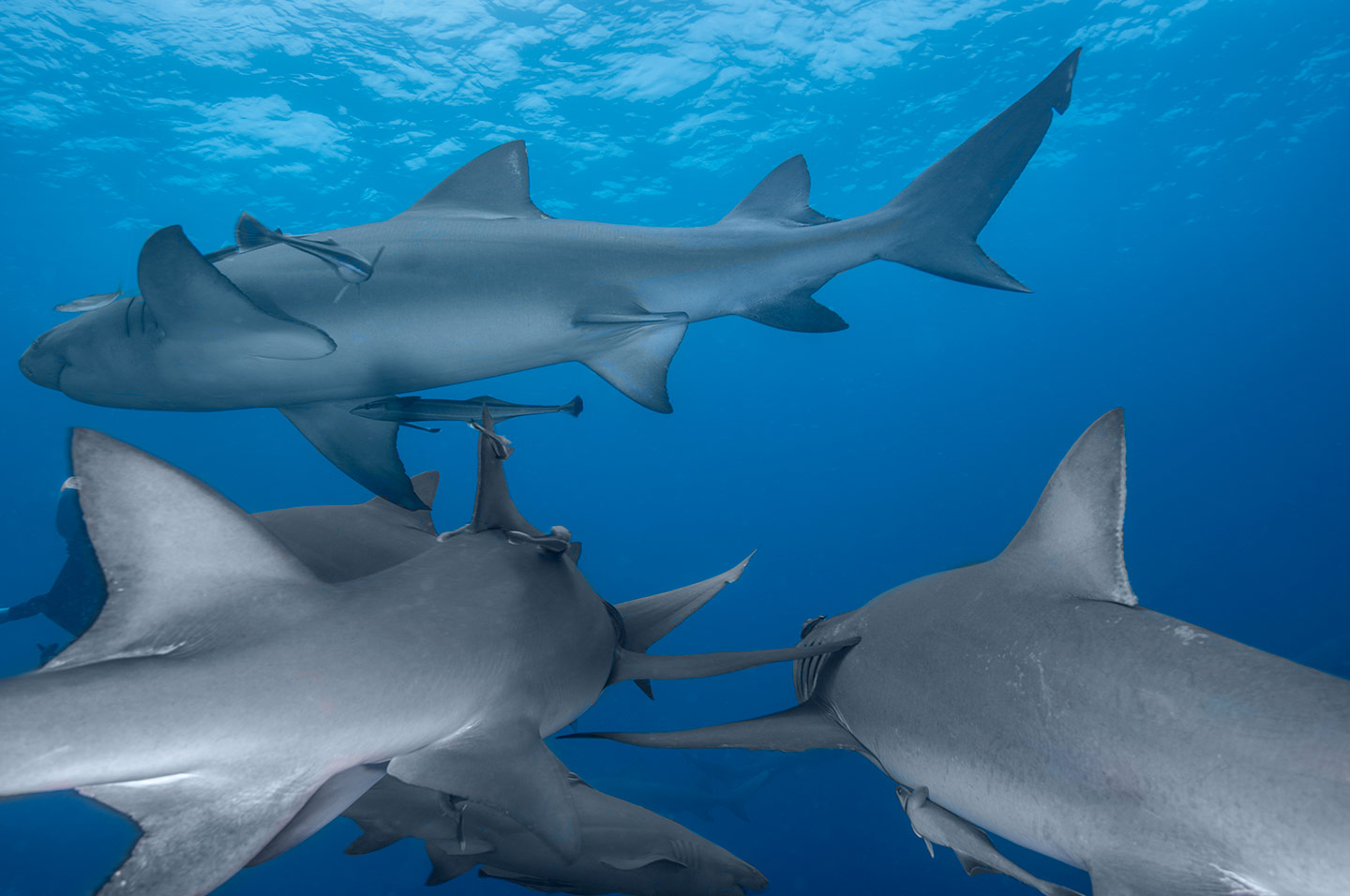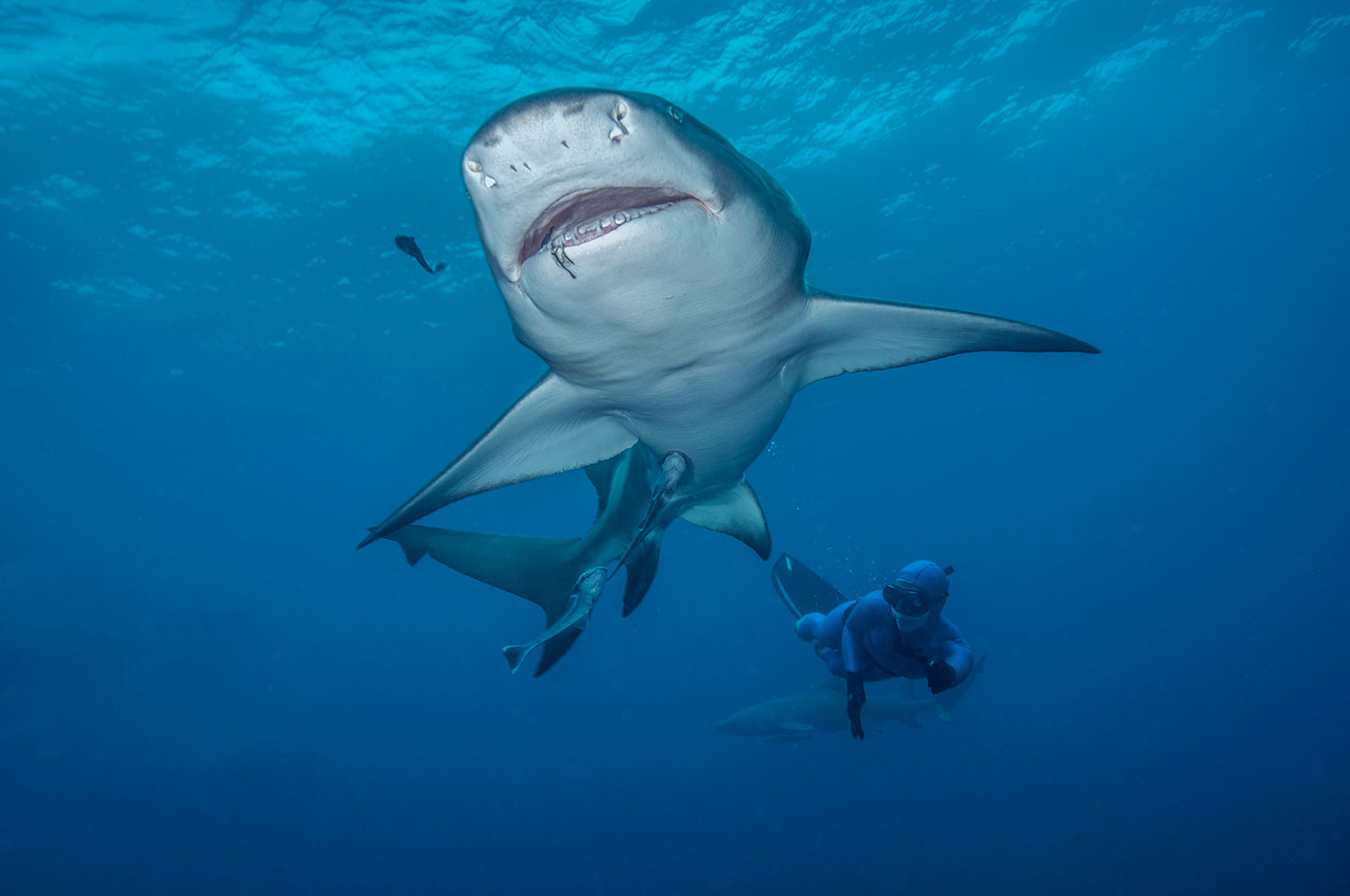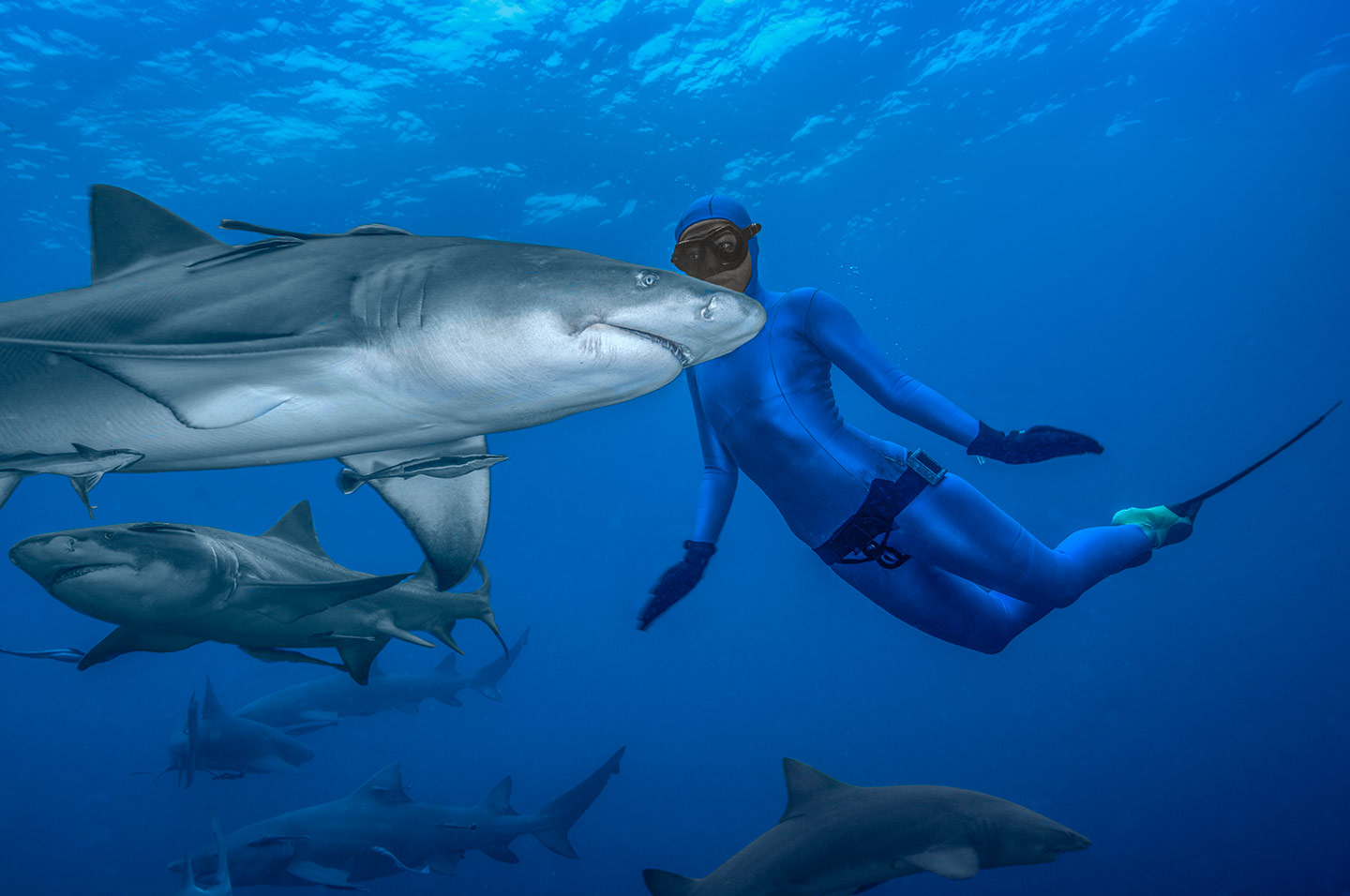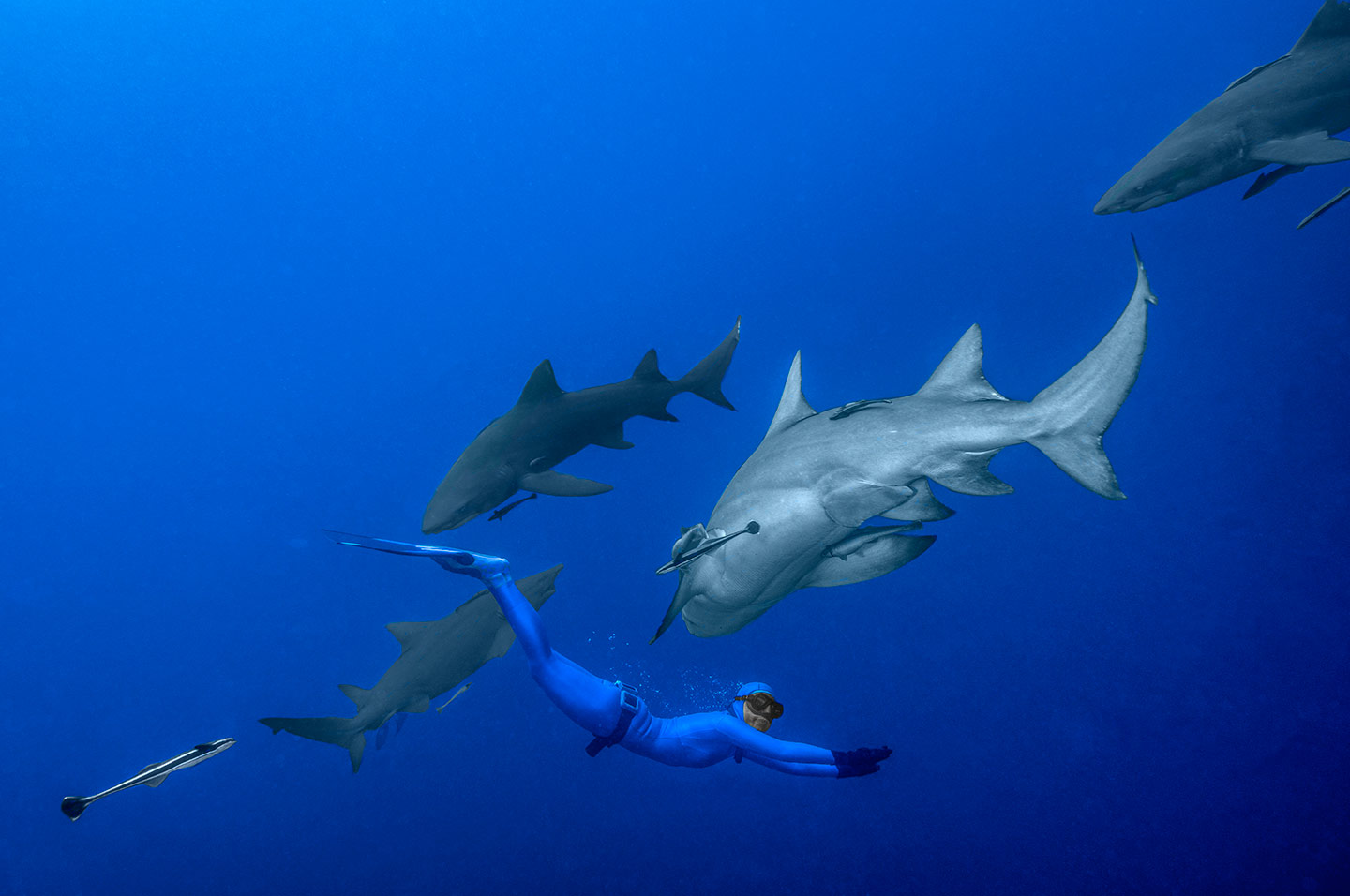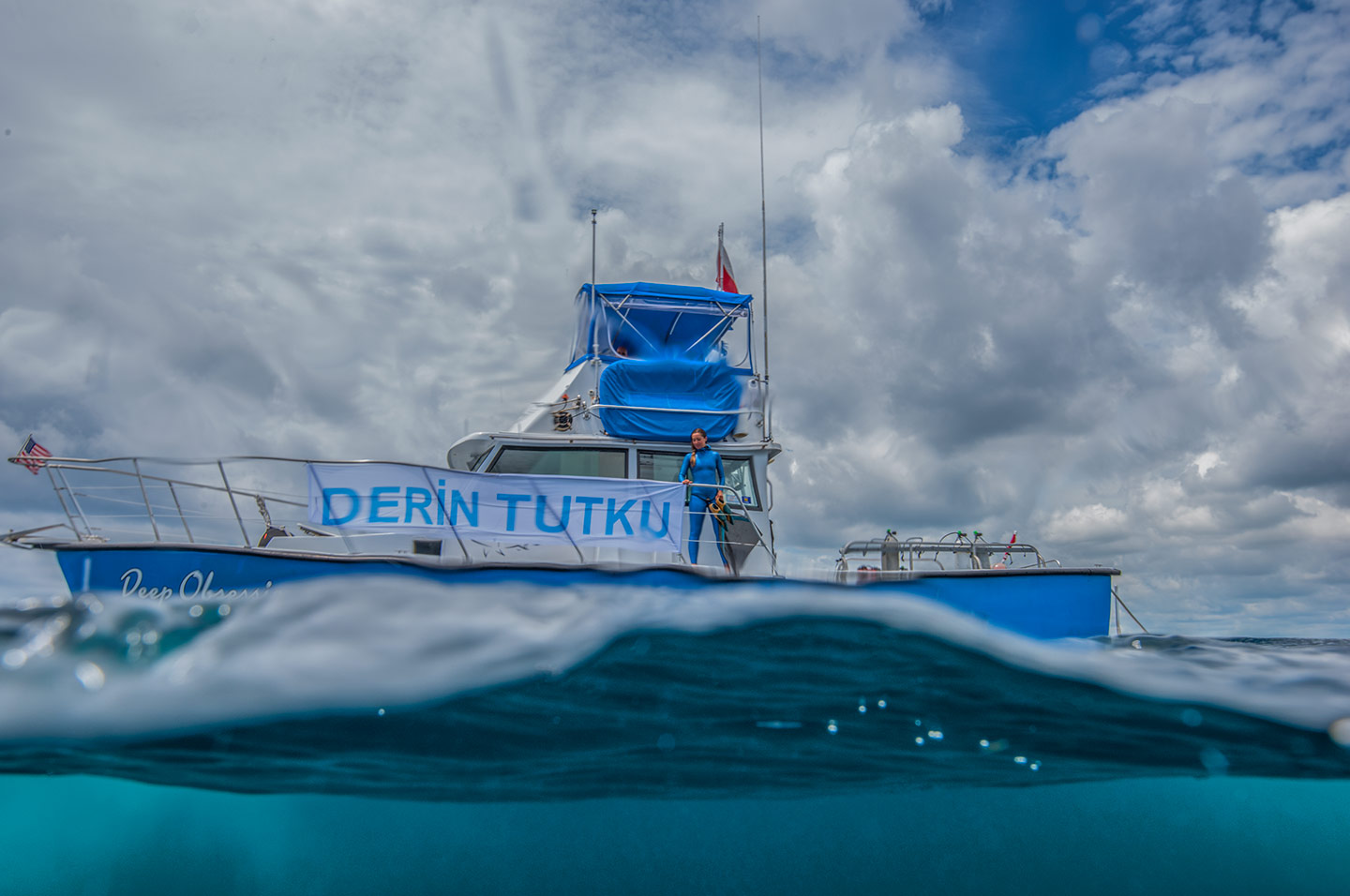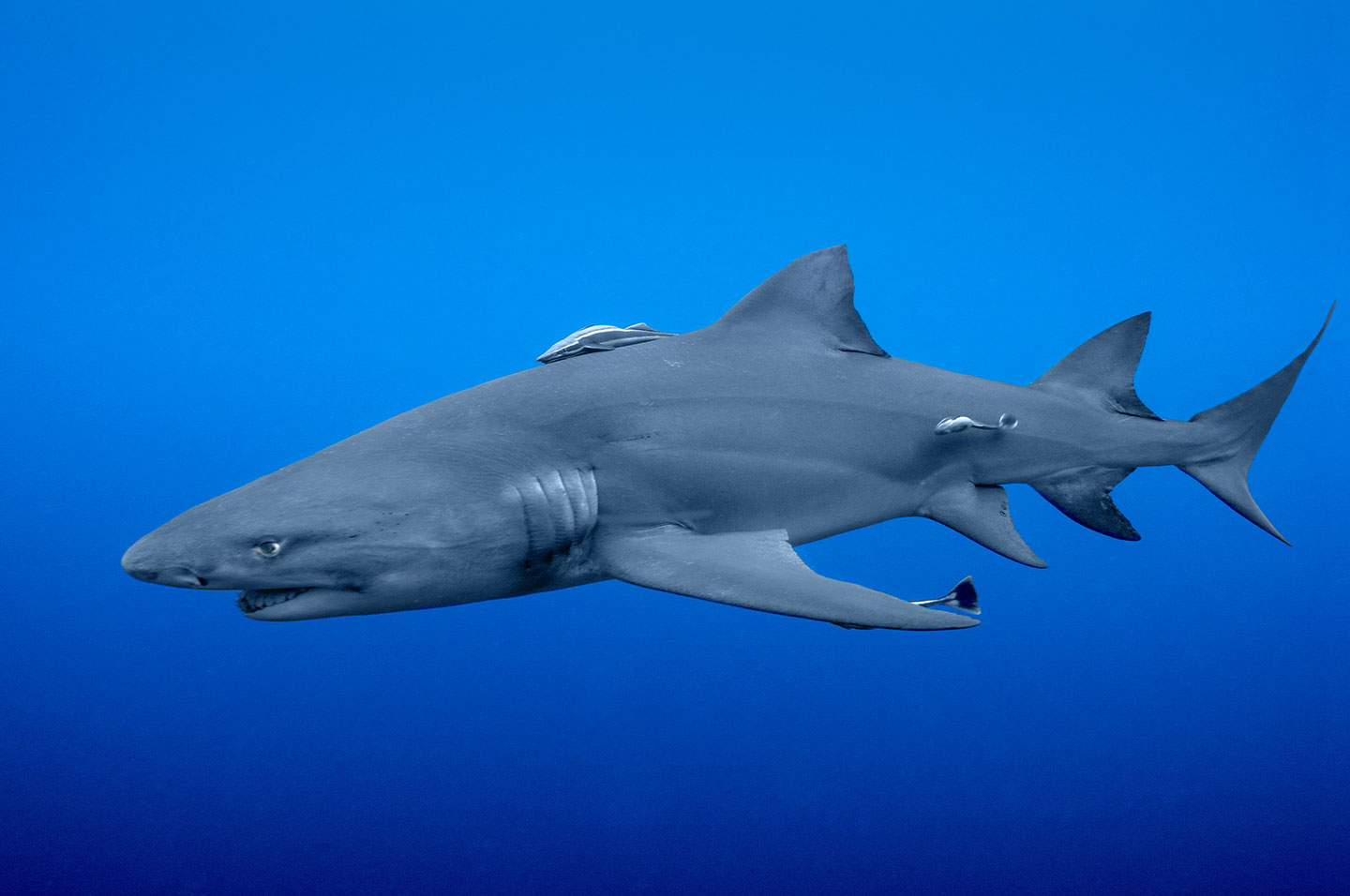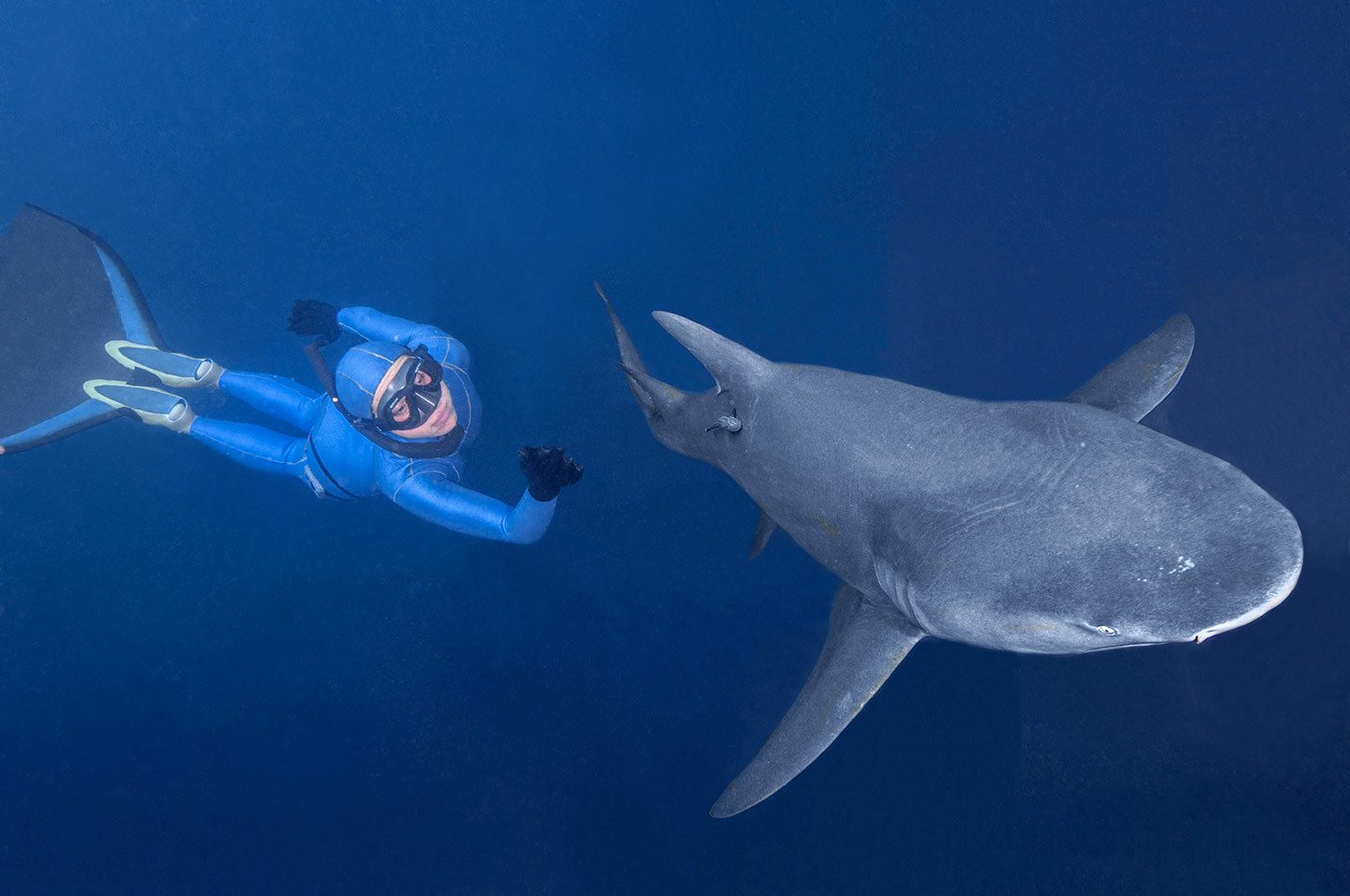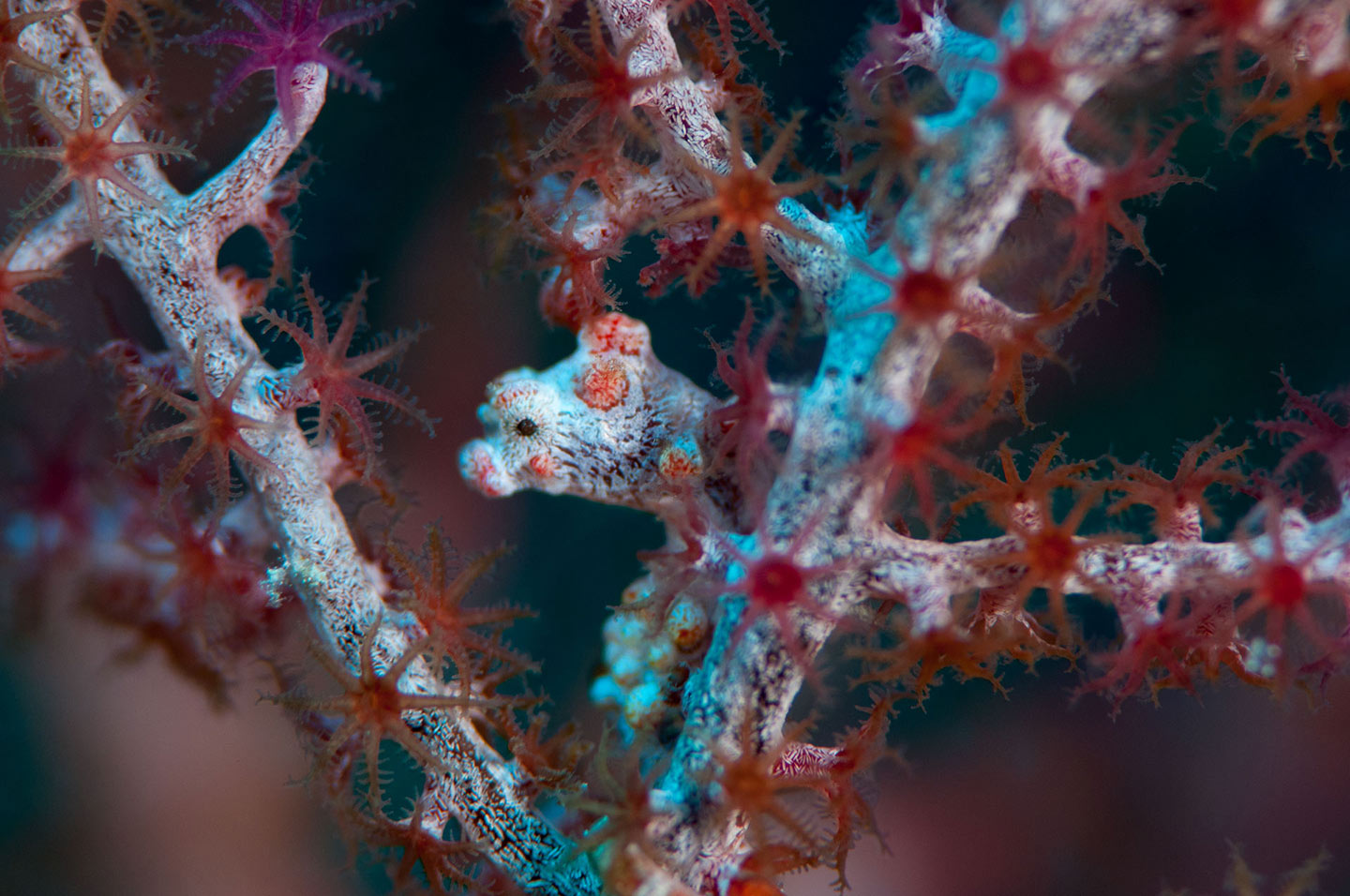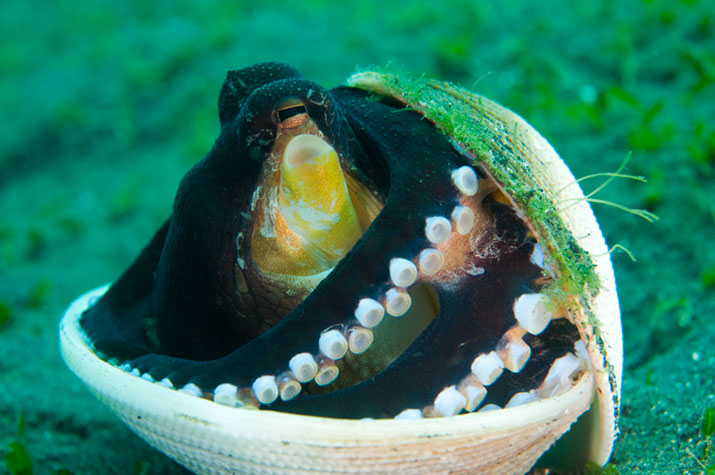Ayşegül Dinçkök
Ayşegül Dinçkök is a professional underwater diver and photographer.
She has been involved with water sports all her life; was in Turkish National swimming team had several national records.
With her passion in watersports she obtained her diving certificate and started to take underwater photographs to make sure that everyone who did not have the chance to see the wonders of the sea and oceans.
Dinçkök who revealed her passion by photographing the rare creatures living on the bottom of the ocean at Raja Ampat and launched her first underwater photography exhibition ‘Deep Passion’ in a museum in İstanbul.
Her second exhibition was ‘Deep Passion Air*' and the third one was named ‘Misunderstood’ took place in May 2018 at the Istanbul Naval Museum.

MUNDUS Latin word; Universe, Earth, Humanity, Clean
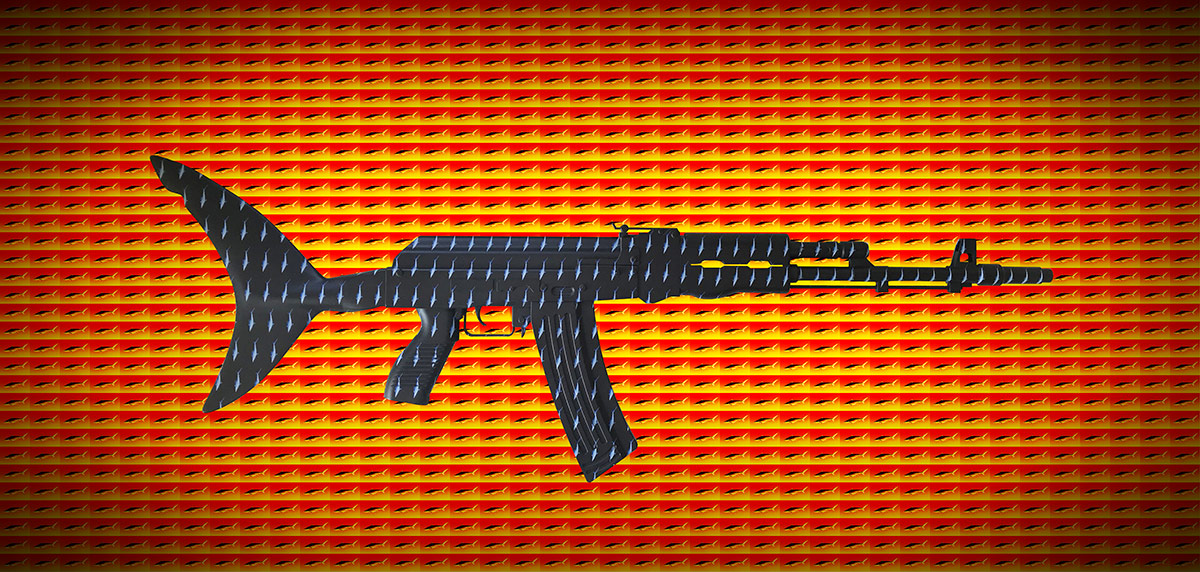
Size: 80x170 cm
Edition: 3 + 2 Artist Edition
MIX MEDIA / C-PRINT + MUSEUM / PLEXIGLASS SANDWICH / 3-D PRINT + WATERPRINT
Ayşegül Dinçkök emphasizes on commonalities between sharks and women with “Misunderstood” exhibition
Deep Passion ‘Misunderstood’ exhibition which is a joint project of the underwater photographer Ayşegül Dinçkök and world free diving champion Şahika Ercümen. It will take place on May3rd at İstanbul Naval Museum.
At this exhibition you will experience two courages women swimming 30 meters underwater at the far end of the ocean together with sharks in harmony. The video art’s music was composed and played by İklim Tamkan.
The main objective is to draw attention to the trust between these women and the solidarity they share.
Ayşegül Dinçkök is scuba diver and Şahika Ercümen free diver, asking people to understand that, every living creature could exist together when approached correctly and without threath.
The biggest damage is caused a by misunderstandings.
They met with sharks at the bottom of the ocean, 120 kilometers off the coast of Florida at Jupiter Point and emphasize that in this unique world, all living creatures can be together only by understanding each other and the nature.
The exhibition shows that women have a lot in common with sharks, one of the oldest living creatures that have been underwater for 400 million years.
Sharks underwater and women on soil have been subject to violence as they are misunderstood and misjudged.
To create a world of peace is only possible if we try to understand each other and live in harmony.
The exhibition reveals that there is no other world and we need to make this world worth living.
Deep Passion Misunderstood on Press


Supporting Women with CABA Women Fund
Ayşegül Dinçkök is donating the earnings of the exhibition to the Women Fund of CABA Foundation which is found under the statement of ‘If you can not find the strength; look for courage’. Although the fund aims to empower women in need and bring them to life, it also aims to support women's projects and to support them to struggle with their difficulties.
Marine Ranger Project - Mediterranean Conservation Society
“The Gökova Bay is home to a number of protected species, including the Mediterranean Monk Seal (Monachus monachus) and the Sandbar shark (Carcharhinus plumbeus). In the Bay of Gökova, where more than 200 coastal fishermen, including female fishermen, are living, six fields have been declared closed to the fishery in 2010 in order to recover the reduced fish stocks and to protect sensitive spawning areas. The Marine Ranger Service System was developed with the idea that the protection activities in the areas should be increased and the responsible institutions should be supported in this respect.
The project, which has significant output and conservation success, is the Whitley Fund for Nature Award, known as the “Green Oscar” in 2013, the United Nations Development Program (UNDP) Equator Initiative Award in 2014.The current goal of the project is to protect the nature and promote rural development by using this successful application example in other areas as well.
http://www.akdenizkoruma.org.tr/en.html/turkish-gokova-korfezi-deniz-koruculugu-projesi/

Aegean Fisherwomen
Prepared by: Zafer KIZILKAYA, Underwater Research Association
A study conducted by Ege University Faculty of Fisheries, in the southern Aegean region of Turkey has revealed that the area where most fisherwomen found. Of the 3911 licensed fisher in the South Aegean region, 163 are female. The women of the Aegean are mostly working as crews in small boats in the fishing sector. 41 percent of female fishermen are between 40 and 49 years old. The majority of these women who go hunting with their husband have primary school education.
Fishery is the only means of subsistence for since more than 80 percent of the fisherwomen, they do not have the possibility of breaking off the sea and they spend 240 to 300 days of the year working at sea. They see the fishing as a part of their responsibilities, not as a separate business, but as a part of daily household chores. Because their existence are not taken seriously there is no information about women and no regulation in the sector. It is not possible for women to be democratically represented in this area because fishermen do not accept the idea of women becoming members of the co-operative. With this project;
- Most women want to have new tools and materials, and believe that new equipments will increase their potential for hunting technologically.
- They are planning to renew his boats or turning their boats into a restaurant or a cafe if they can afford.
- As in the agricultural sector, low-interest bank loans are expected to be recognized.
- Despite these difficult to maintain conditions, almost none of them intends to leave their profession.
The photos to be bought by the collectors in the exhibition of Deep Passion will be evaluated within the scope of this project. This resource, which will be created with the contribution of art lovers, will be used primarily to improve the opportunities and social security of all fisherwomen who have lost their husband and have to struggle alone at sea.

Deep Passion Air
Deep Passion on TV
- CNN Türk Işıltılar
- ekavart.tv
- İnci Aksoy ile Art Life - WTC
- Afiş - CNN Türk
- NTV - Gece Gündüz
- Murat Güloğlu - FOX TV
- 7'de Sanat - İMC TV
- Haber Türk
- CNN Türk
- Tv'em
- CNN Türk
- Habertürk Aktüalite
- NTV
- Fashion One
Deep Passion on Press
- Reward excitement in Deep Passion
- Deep Passion meets kids in Hatay
- Deep Passion meets kids in Mardin
- They saw the sea for the first time
- Dived to 20 meters in Sulawesi and took two thousand photos
- I have everything but my sole purpose is being able to produce
- Deep Passion is in Van
- Ayşegül Dinçkök's Deep Passion
- They are one step ahead of us
- Deep Passion carpet will be weaved in Mardin
- One of Turkey's most beautiful places: Arsuz
- Deep Passion is in Derin Kubbe
- Stars of the underwater
- Ayşegül Dinçkök's Deep Passion is in Mardin
- I'm dealing with myself in underwater
- Stepevi
- Underwater meeting of business world returned to investment tour in Mardin
- I'm meditating underwater
